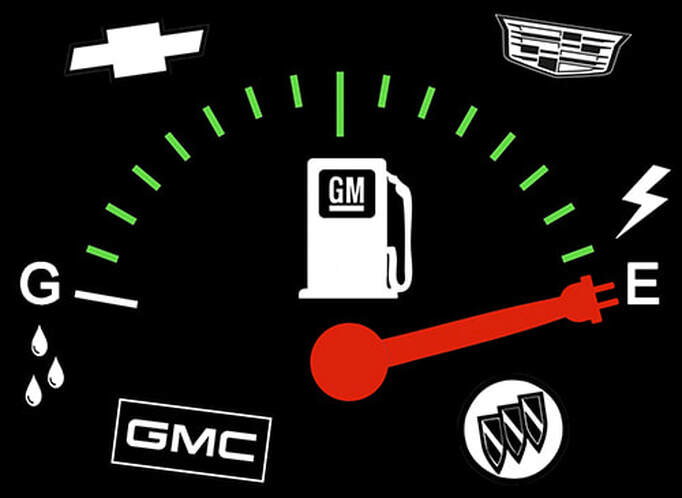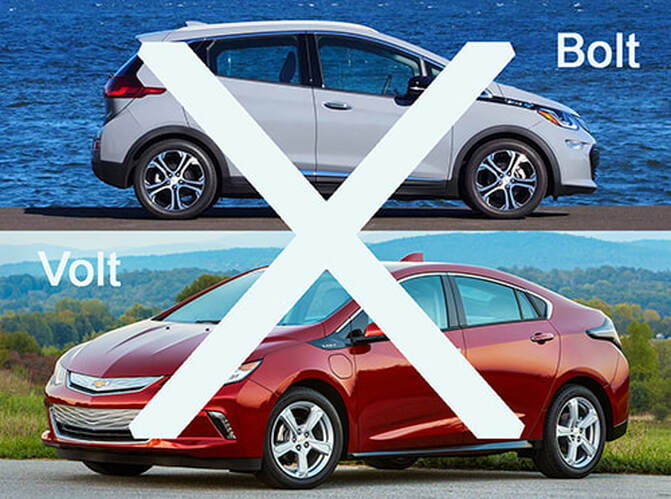author of Honorable Influence - founder of Mindful Marketing
About a week ago General Motors made the stunning announcement that it would “phase out petroleum-powered cars and trucks and sell only vehicles that have zero tailpipe emissions by 2035.” Companies revamp product lines all the time, so what makes this U-turn so extraordinary?
Throughout most of its 113-year history, the gasoline combustion engine has been the driving force inside the vast majority of the automaker’s products. Gas has been to GM like chicken is to KFC. In fact, GM could stand for Gasoline Motors.
GM has long-been known for gas-gulping sedans like Buicks and Cadillacs, as well as increasingly popular pickup trucks and SUVs, including one with one of the lowest MPGs of any noncommercial vehicle in the modern era--Hummer.
Not only has the company been an avid user of petroleum-burning technology, it’s also been a developer. For instance, “In 1971, GM pioneered the use of engines that could run on low-lead or unleaded petrol.”
Meanwhile, this world-leading automaker hasn’t exactly been heading the charge into electric vehicles (EVs). In 2016, Bloomberg estimated that GM lost $9,000 on every all-electric Chevrolet Bolt it sold, and in 2019, the company halted production of its Chevrolet Volt hybrid car. Both of these short-circuits likely contributed to projections that EVs would account for just “5 percent of the automaker’s total production by 2026.”
What’s more, in an effort to promote a gas-fueled future, General Motors joined a Trump administration lawsuit against California aimed at compelling the state to decrease its gas-mileage standards to the lower federal levels.
In short, “General Motors’ history hasn’t been especially kind to electric mobility.”
So, would a company kept afloat for so long by gasoline really want to sever that fuel line?
Given GM’s history and current product portfolio, it’s easy to suspect that the company is simply playing a PR card. Perhaps ‘no petroleum by 2035’ is a stretch goal that the company doesn’t actually expect to achieve, or the objective is just symbolic of the firm’s intent to be more environmentally-friendly.
Companies making such bold long-term projections can take cover in our collective amnesia. In 2035, will anyone remember what GM promised a decade and a half earlier, let alone hold the company accountable?
GM’s current CEO, Mary Barra, has been leading the automaker since January of 2014. Given the five-year median tenure for CEOs of large-cap companies, how likely is it that she’ll be at the helm in 15 years at the age of 74? If there is accountability for GM’s no-petroleum pledge, it probably will fall on one of Barra’s successors. That protection along with pressure for next quarter’s earnings could encourage a leader to promise anything!
However, GM doesn’t really need a confidence-building headline right now—the company is actually doing well. Since a low of $16.80 per share on March 18, 2020, its stock price has tracked steadily upward to its current price of $54.25, making a market cap of $72.54 billion. The company’s trailing twelve months revenues are $115.79 billion with net operating income from continuing operations of $3.39 billion.
Furthermore, many have an optimistic outlook on the firm, including 18 investment analysts CNN recently polled, all of whom gave the stock a “buy” rating. Given the momentum of its existing operations, maybe a better question to ask is: Is GM making a big mistake by promising to sever its gasoline fuel line?
One very good reason for wondering is that GM’s sales are increasingly skewed toward bigger products. In 2019, GM delivered 2,887,046 vehicles in the U.S., of which more than 2 million were full-size pickups, SUVs, and crossovers. Those bulkier vehicles need more energy to move their larger masses, especially if they’re hauling or towing things. That kind of power demand can be hard for battery power to support.
Political uncertainty is another issue. After the Biden administration’s win and call for more clean energy, GM withdrew from the California fuel efficiency lawsuit—a move that seems prudent now, but what happens if the pendulums of politics and consumer sentiments swing back, away from environmentalism, as they’ve done on more than one occasion? Will GM wish it hadn’t made such a life-changing commitment?
It’s reasonable to ask these kinds of questions about the authenticity of GM’s promise and the acumen of its long-term strategy. However, it’s still very likely that the company’s electricity-powered approach is its best path forward, for strategic and moral reasons:
- No future in fossil fuels: Each year, more organizations and individuals convert their energy consumption to renewable sources such as solar and wind. Although economic influences like low oil prices may temporarily slow the trend, it will continue, especially with more pro-environment government policies, purchase incentives, and industry innovation, such as Apple’s potential autonomous EV.
- Turning an aircraft carrier: Many of the newer EV producers are more nimble than GM because of their smaller sizes, flatter corporate structures, and more risk-tolerant organizational cultures. It typically takes an older, larger company longer to make a significant business model change, especially if the company is not privately held but needs to answer to shareholders.
- A planet in peril: In the face of mounting evidence, it’s hard to overlook the negative impacts that CO2 emissions are having on the environment, including its animals, plants, and people. Even if GM could continue to sell petroleum-powered products for another hundred years, moral considerations like fairness to those breathing polluted air and stewardship of limited resources suggest that the company shouldn’t continue production as usual.
As often happens in the auto industry, GM’s changes will have some significant impacts on other companies such as its main suppliers, as well as on thousands of other organizations that automotive touches like service centers, gas stations, and replacement parts suppliers.
However, just as this large corporation’s changes will threaten certain industries, those that respond to the challenge and adapt may find great economic opportunities, like manufacturing batteries and operating charging stations.
GM’s 15-year conversion commitment is a big, bold move, yet it’s one the company needs to make for its own success, as well as for the wellness of our world. Maybe this major player’s actions will inspire others to take similar steps, making GM’s electrical charge even more “Mindful Marketing.”
Learn more about the Mindful Matrix.
Check out Mindful Marketing Ads and Vote your Mind!





 RSS Feed
RSS Feed